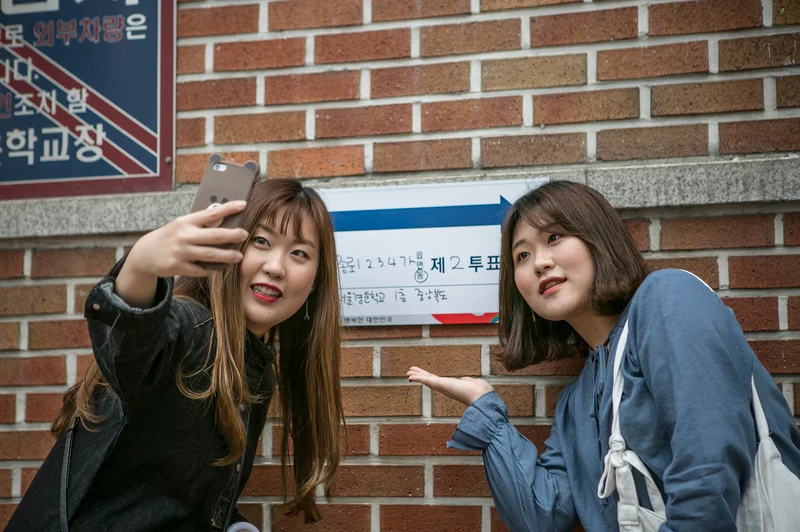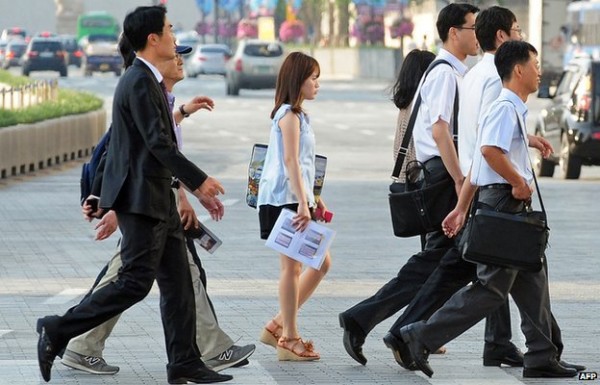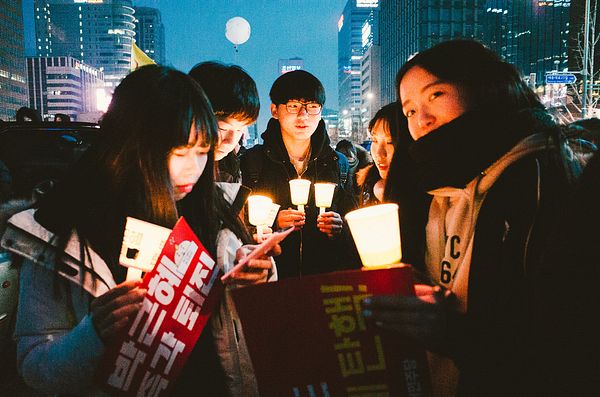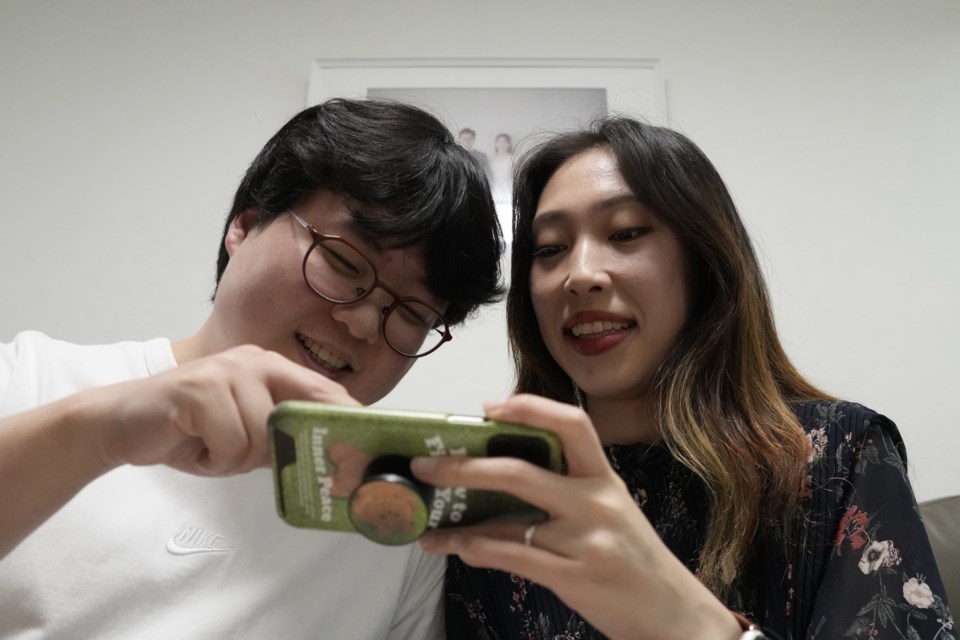News
Millennials in South Korea Refusing to Have Children

The total fertility rate — the average number of babies born to each woman during her reproductive years — in South Korea was 0.81 last year, according to the country’s statistics agency. For the third year in a row, this is the lowest in the world.
The population shrank for the first time in 2021, raising fears that a shrinking population will severely harm the economy — the world’s tenth largest — due to labour shortages and increased welfare spending as the number of older people grows and the number of taxpayers shrinks.
President Yoon Suk Yeol has directed policymakers to devise more effective solutions to the problem. He claims that the fertility rate is falling despite South Korea spending 280 trillion won ($210 billion) over the last 16 years to try to reverse the trend.
Many South Koreans millennials say they don’t feel obligated to have a family, unlike their parents and grandparents. They cite the insecurity of a bleak job market, high housing costs, gender and social inequality, low levels of social mobility, and the enormous cost of raising children in a brutally competitive society.
Women also complain about a pervasive patriarchal culture that forces them to do much of the childcare while facing workplace discrimination.
“In a nutshell, people believe that our country is difficult to live in,” said Lee So-Young, a population policy expert at the Korea Institute for Health and Social Affairs. “They believe their children cannot have better lives than they do, and thus question why they should have children.”
 Dropouts in South Korea
Dropouts in South Korea
Because South Korea lacks advanced social safety nets, many people who fail to enter good schools and land decent jobs believe they have become “dropouts” who “cannot be happy” even if they marry and have children, according to Choi Yoon Kyung, an expert at the Korea Institute of Child Care and Education.
She claimed that South Korea failed to establish such welfare programs during its period of explosive economic growth from the 1960s to the 1980s.
Yoo, the Seoul financial worker, stated that she desired a child until she entered college. But she changed her mind after seeing female coworkers calling their children from the company restroom to check on them or leaving early when their children were sick. She claimed that her male coworkers were not required to do this.
“After seeing this, I realized that having children would significantly reduce my concentration at work,” Yoo explained.
Jo Jun Hwi, her 34-year-old husband, believes that having children is unnecessary. Jo, an interpreter at an information technology firm, said he wants to enjoy his life after years of job-hunting that left him “feeling like I was standing on the edge of a cliff.”
There are no official statistics on how many South Koreans choose not to marry or have children. However, according to national statistics, there were approximately 193,000 marriages in South Korea last year, down from a peak of 430,000 in 1996.
Unsuitable for raising children
According to the agency’s data, approximately 260,600 babies were born in South Korea last year, down from 691,200 in 1996 and a peak of one million in 1971. The most recent figures were the lowest since the statistics office began collecting such information in 1970.
Kang Han Byeol, a 33-year-old graphic designer who has chosen to remain single, believes that South Korea is unsuitable for raising children. She cited her dissatisfaction with gender inequalities, widespread digital sex crimes against women, such as spy cameras hidden in public restrooms, and a culture that dismisses those advocating for social justice.
“I can think about marriage when our society is healthier and gives equal status to men and women,” Kang said.
Kang’s 26-year-old roommate Ha Hyunji also decided to remain single after married female friends advised her not to marry because they do the majority of the housework and child care. Ha is concerned about the large sum of money she would spend on private tutoring for any future children in order to keep them from falling behind in an education-obsessed country.
“I can have a fun life without getting married and enjoy it with my friends,” said Ha, who owns a cocktail bar in Seoul.
Free birth control pills and condoms
South Korea maintained birth control programs until the mid-1990s, which were initially implemented to slow the country’s postwar population explosion. The country provided free contraceptive pills and condoms at public medical centres and exempted men from military reserve training if they had a vasectomy.
According to United Nations data, a South Korean woman had four to six children on average in the 1950s and 1960s, three to four in the 1970s, and less than two in the mid-1980s.
South Korea has a number of incentives and other support programs in place for those who have a large number of children. However, according to Choi, the expert, the fertility rate has been falling too quickly to see any tangible effects.
Decision to live without children
During a government task force meeting last month, officials stated that comprehensive measures to address demographic challenges would be developed soon.
South Korean society still looks down on those who are childless or single.
When Yoo and Jo announced their decision to live without children on their YouTube channel, “You Young You Young,” in 2021, some viewers called them “selfish” and demanded that they pay more taxes.
Yoo was also accused of “gaslighting” Jo’s husband in the messages. Lee Sung-jai, a 75-year-old Seoul resident, believes that marrying and having children is “the order of nature.”
“These days, I see some (unmarried) young women walking their dogs in strollers while claiming to be their mothers.” Did they give those dogs birth? “They’re insane,” he said.
Seo Ji Seong, 38, said older people often call her a patriot for having so many children, even though she didn’t have them for national reasons. She is expecting her fifth child in January.
Seo’s family recently relocated to a rent-free apartment in Anyang provided by the state-run Korea Land and Housing Corporation and the city for families with at least four children. Seo and her husband, Kim Dong Uk, 33, receive additional state assistance, but raising four children is still difficult financially.
Kim stated that he enjoys seeing each of his children develop unique personalities and talents, whereas Seo believes that playing and competing with one another at home helps their children’s social skills.
“They’re all so adorable. That’s why, despite the difficulties, I’ve continued to have children,” Seo explained.
Source: The Associated Press

 Dropouts in South Korea
Dropouts in South Korea































